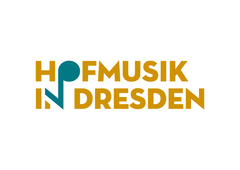Arias Identified in Dresden Royal Private Music Collection
Roberto Scoccimarro
Tuesday, May 26, 2015

Our colleague Roberto Scoccimarro from the SLUB in Dresden (D-Dl) brings us the latest from the Dresden Court Music project.
Arias in the Royal Private Music Collection are full of exciting surprises, allowing us to identify composers and put stray arias back with their operas.
One example is a manuscript (D-Dl Mus.2666-K-1) that contains anonymous strophic compositions in Venetian dialect (arie da battello). These “gondola songs” are actually textual parodies and arrangements of arias from L’amor di figlia by Giovanni Porta and Amalasunta by Fortunato Chelleri, both performed in the 1720s in Venice.
Apart from this case, which is also interesting for ethnomusicologists, numerous other manuscripts can be named.
One aria, “Va tra le selve ircane,” which was previously considered to be a doubtful work by Pergolesi, was securely assigned to Galuppi’s opera Artaserse. A similar case is a manuscript with a title page erroneously assigning the contents to Niccolò Jommelli’s opera Sofonisba. It is in fact an excerpt from the opera Sofonisba by Tommaso Traetta.
Overly eager 19th-century librarians also made incorrect attributions from time to time. On the table of contents for a collection of twelve arias (D-Dl Mus.2667-I-1), all works were attributed to an unknown “Battoni.” More precise research has shown that some of the excerpts are from the opera Nicoraste (Venice, 1745) by the composer Giovanni Battista Patoni (or Pattoni, ca. 1713-1773) and the other arias are works by Johann Adolph Hasse.
Finally, two previously anonymous arias in particular deserve to be named: they have turned out to be compositions by Prince Anton of Saxony, son of Maria Antonia and Friedrich Christian of Saxony. These works were written in 1775 for L’isola disabitata (RISM no. 212008731 and 212008732).
Share Tweet EmailCatégorie: Collections de bibliothèques

